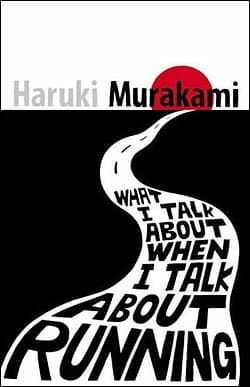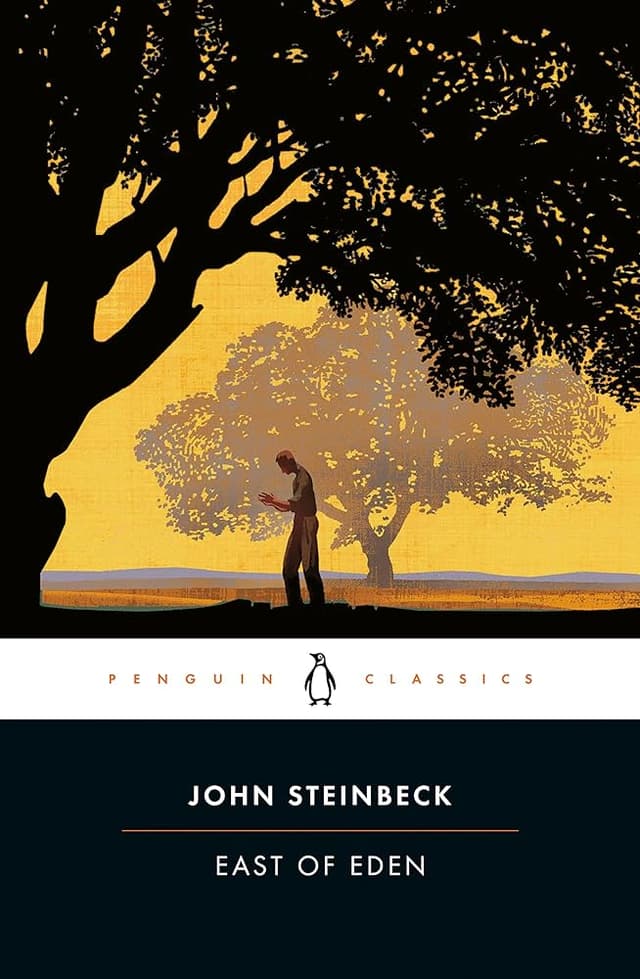What I Talk About When I Talk About Running vs. East of Eden
What I Talk About When I Talk About Running
What I Talk About When I Talk About Running is a memoir by Haruki Murakami where he talks about two things that define a big part of his life: running and writing. Murakami didn’t always plan on being a novelist. He was running a jazz bar in his twenties when, while watching a baseball game, he suddenly thought, “I could write a novel.” He gave it a shot, it worked out, and he eventually sold his bar to focus on writing full-time. But sitting at a desk all day, smoking and not moving much, wasn’t doing his health any good. That’s when he picked up running. For Murakami, running is more than just exercise—it’s part of his routine and, in a way, a metaphor for writing. Both take endurance. Both are long hauls where you push yourself day after day, even when you don’t feel like it. The book follows him as he trains for marathons, competes in triathlons, and grapples with the slow decline of his physical abilities as he ages. He talks a lot about acceptance—accepting getting older, accept...
East of Eden
In his journal, Nobel Prize winner John Steinbeck called East of Eden “the first book,” and indeed it has the primordial power and simplicity of myth. Set in the rich farmland of California’s Salinas Valley, this sprawling and often brutal novel follows the intertwined destinies of two families—the Trasks and the Hamiltons—whose generations helplessly reenact the fall of Adam and Eve and the poisonous rivalry of Cain and Abel.

Reviews
Reviewed on 2/28/2024
I read this book when I first started running long distance. I was living in Chiang Mai and I'd go this huge park a couple of times a week and just run loops around the lake. At the end of my run I'd grab a milk tea and a banana bread from a local coffee shop and just read a few pages. Great memories of many chill evenings, running and reading about running.
Reviews
| Item | Votes | Upvote |
|---|---|---|
| Easy read | 1 | |
| Motivating | 1 | |
| Peaceful | 1 |
| Item | Votes | Upvote |
|---|---|---|
| No cons yet, would you like to add one? | ||
| Item | Votes | Upvote |
|---|---|---|
| No pros yet, would you like to add one? | ||
| Item | Votes | Upvote |
|---|---|---|
| No cons yet, would you like to add one? | ||
Frequently Asked Questions
'What I Talk About When I Talk About Running' by Haruki Murakami is a reflective and motivational book that shares the author's personal experiences with running and writing. It is praised for being an easy and peaceful read. On the other hand, 'East of Eden' by John Steinbeck is a sprawling novel set in California's Salinas Valley, dealing with themes of good and evil through the intertwined destinies of two families. It is known for its mythic power and complexity. The choice depends on what you are looking for: a motivational and personal narrative in 'What I Talk About When I Talk About Running' or a complex, mythic novel in 'East of Eden'.
'What I Talk About When I Talk About Running' by Haruki Murakami is considered more motivating as it directly shares the author's personal journey and the motivational aspects of running, which can inspire readers to persevere and not give up. 'East of Eden', while powerful, focuses more on complex themes of good and evil and may not provide the same level of personal motivation.
'What I Talk About When I Talk About Running' by Haruki Murakami is generally considered an easier read due to its diary-like format and straightforward narrative focused on personal experiences. 'East of Eden' by John Steinbeck, while richly rewarding, is a more complex and lengthy novel that might require more time and effort to fully appreciate.
'What I Talk About When I Talk About Running' is a memoir by Haruki Murakami that explores the intertwined themes of running and writing. Murakami shares his journey from running a jazz bar to becoming a novelist, detailing how running became a crucial part of his life and a metaphor for his writing process. The book reflects on endurance, acceptance of aging, and the highs and lows of both running and writing.
Pros of 'What I Talk About When I Talk About Running' include its easy readability, motivating content, and the peaceful tone of Murakami's writing. There are no cons listed for this book, indicating that readers generally find it to be a positive experience.
Haruki Murakami is a renowned Japanese author known for his unique blend of magical realism, surrealism, and themes of loneliness and existentialism. He gained international fame with novels such as 'Norwegian Wood' and 'Kafka on the Shore.' In 'What I Talk About When I Talk About Running,' he shares personal insights into his life as a writer and runner.
The writing style of 'What I Talk About When I Talk About Running' is straightforward and conversational, as if Murakami is sharing his thoughts over coffee. He often includes personal anecdotes and reflections, making the narrative relatable and engaging for readers.
In 'What I Talk About When I Talk About Running,' memorable moments include Murakami's experiences training for marathons, his reflections on aging and acceptance, and the simple joys of running, such as the satisfaction of finishing a race and enjoying a cold beer afterward. His vivid descriptions of running the original marathon route in Greece also stand out.
'East of Eden' is a novel by Nobel Prize winner John Steinbeck. Set in California’s Salinas Valley, it follows the intertwined destinies of two families—the Trasks and the Hamiltons. The novel explores themes of good and evil, drawing parallels to the fall of Adam and Eve and the rivalry of Cain and Abel.
The author of 'East of Eden' is John Steinbeck, a Nobel Prize-winning American author known for his impactful and vivid storytelling. Steinbeck's works often explore themes of social and economic issues.
'East of Eden' delves into major themes such as good versus evil, the concept of free will, and the quest for identity. It also explores familial relationships and the moral struggles within them.
'East of Eden' is set in the rich farmland of California’s Salinas Valley. The setting plays a significant role in the novel, providing a backdrop that enhances the dramatic and often brutal events of the story.




















